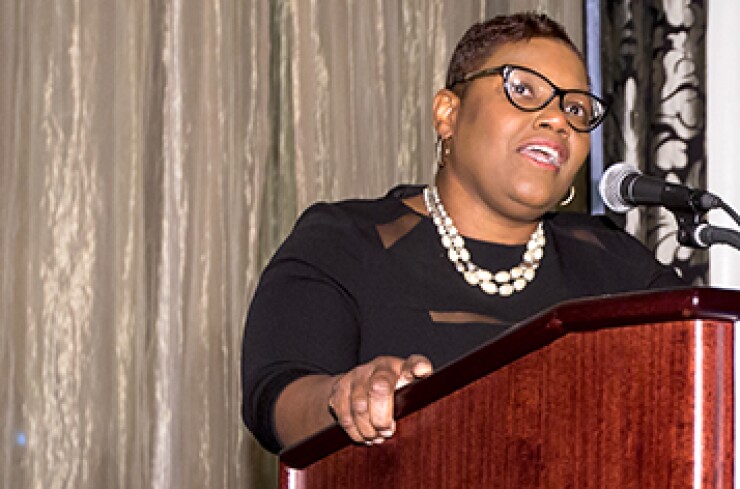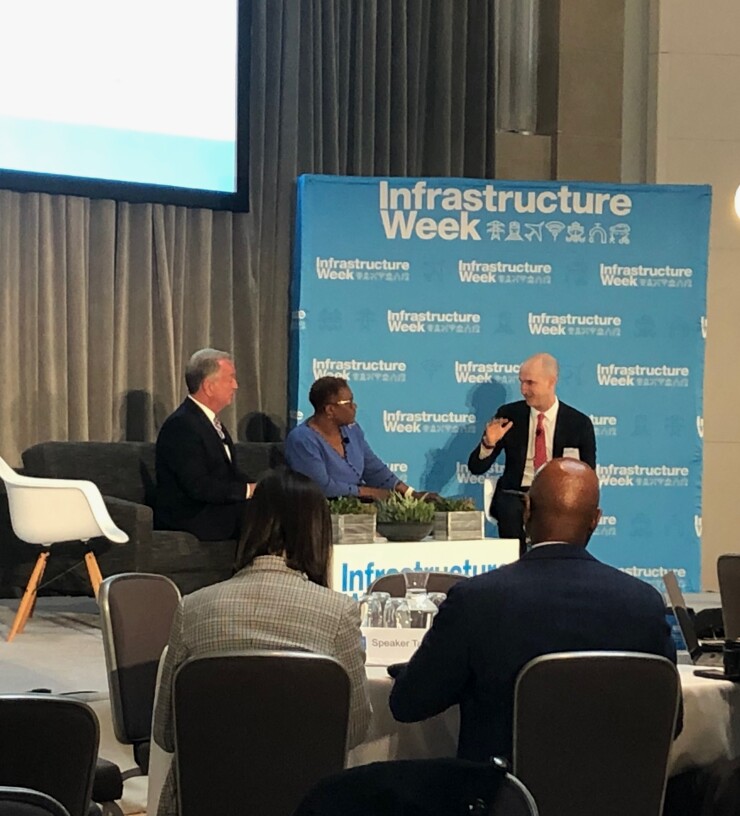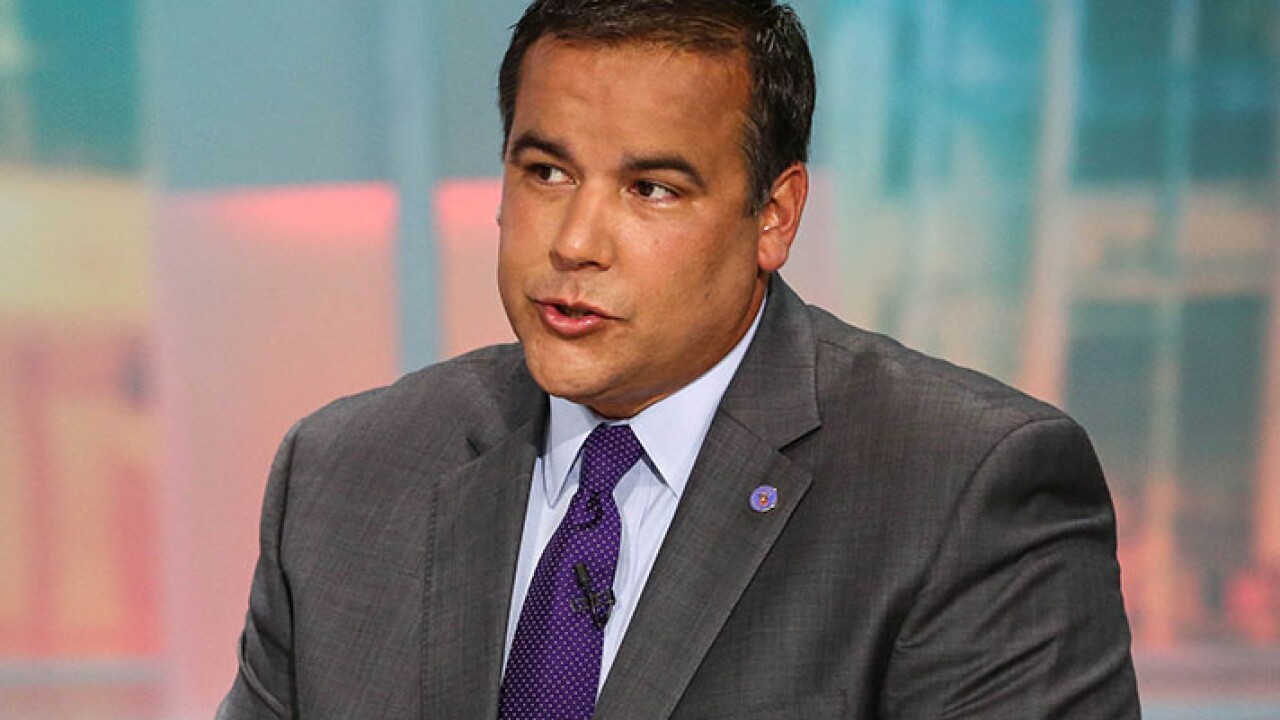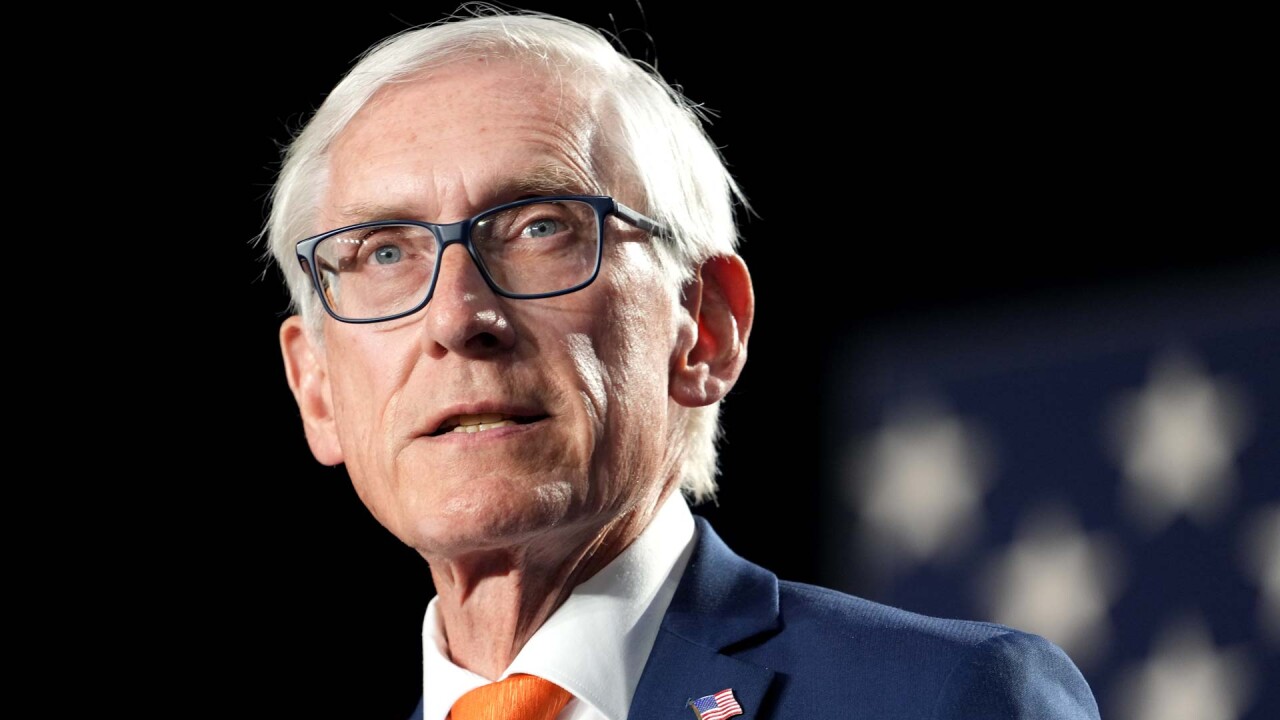WASHINGTON — An already sluggish muni market could suffer from even less new issuance if a federal infrastructure funding bill doesn't materialize, warned Karen Freeman-Wilson, president of the National League of Cities.
During the Monday kickoff to the 7th annual Infrastructure Week, Freeman-Wilson, who is also mayor of Gary, Indiana, said she doubts municipalities will continue to borrow without having a clear repayment mechanism or support from the federal government.
“Bonding is one of the most viable financing opportunities outside of a state partnership or some type of federal grant," Freeman-Wilson said. "You have to have a funding stream in order to make that bonding viable.”
The market has already been slow. April bond issuance

Without a funding stream, municipalities will bond less as the federal government asks them to bear more of the funding weight and public-private partnerships will increase, she said.
In 2013, the Gary Chicago International Airport finalized a P3 project for private operation of the airport and the development of a large swath of land surrounding the airport. Freeman-Wilson referenced the airport, a $150 million project that was helped by federal and state funding. Gary was able to finish it with about $30 million in bonding that was financed locally by passenger facility fees, she said.

That “formula” makes sense for people in municipal governments, but if the federal government asks them to step up at the local level, they won’t have the money to do so, she said.
Optimism for the passing of an infrastructure bill increased among some muni market groups when President Donald Trump, House Speaker Nancy Pelosi and Senate Minority Leader Chuck Schumer
“To us, that was the first moment of the stars potentially aligning for something kind of truly historic,” Neil Bradley, executive vice president and chief policy officer the U.S. Chamber of Commerce told the Bond Buyer.
To finance the $2 trillion plan, the gas tax needs to be raised, Bradley said.
In its
If the administration and congressional leadership can agree on the financing, an infrastructure bill could pass this year, Bradley said.
“If we can get agreement between the president and some of the congressional leadership, no doubt that an infrastructure bill can pass this year,” Bradley said. “The key is getting that agreement that both sides are going to move together and provide the financing and it could happen.”
The impact on the muni market will depend on whether the bill is passed and the details will matter, he said.
“But the sheer fact that Republicans and Democrats are together in a fairly divided Washington to do something big on infrastructure is overall going to be net positive for the market,” Bradley said.
After the meeting between leaders in May, some groups were worried that munis would be hurt in the name of compromise. Bradley said if leaders get into that level of detail, then they’re making progress.
“Let’s get over the initial threshold questions and then I’m confident we can work out something that addresses those types of questions,” he said.
At the event, House Majority Leader Steny Hoyer, D- Md., said he was at the White House meeting and said it’s important to note that Trump would need to lead the way in proposing ways to pay for the $2 trillion plan. Private capital does have a role, but public investment is needed as well, said Hoyer.
“Private capital has a role to play, but there is no substitute for robust public investment, particularly in areas and on projects that don’t promise to yield profits for the private sector," Hoyer said. "Congress has an important role to play, and House Democrats are prepared to join the president in moving this issue forward.”





